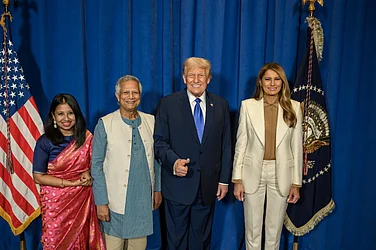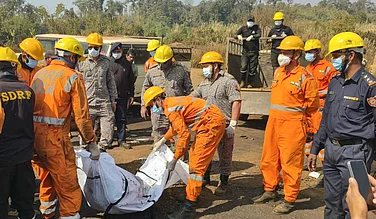As the Chinese Communist Party (CCP) kicks off its 20th National Party Congress since the its formation in 1921, all eyes are fixed at the probable outcomes. Though it is confirmed that breaking the convention of former Chinese premiere Deng Xiaoping of not holding on the party general secretary post for more than two terms, Xi Jinping is not going to step down, the world is looking at the probable policy changes and the directions it’s going to take.
Around 2300 delegates across the country have already gathered in the historic great Hall of the People in Beijing to appoint the top leadership along with finalizing the policy directions for the next five years. Xi is not only about to retain his power for the third consecutive term, he is also going to reportedly deploy his loyalists to the top decision making bodies of the party.
At this juncture, there are several crucial questions floating around the media. Here is what you need to know:
The Significance of the Party Congress
Unlike the multi-party democracies, China has a single party rule. So, the party congress here determines the fate of the country. In late 1970s, the then General Secretary of the CCP, Deng Xiaoping made a rule that no party supreme would hold the post for more than two terms. Though Hu Jintao and Jiang Zemin, two predecessors of Xi followed the norm, he is not ready to leave it so soon.
Xi along with the post of the party secretary also holds two other key positions - Chairman of the CCP Central Military Commission and the President of the People's Republic of China. According to the reports, while Xi will extend his Military title in this party Congress only, he will stretch his presidency in the upcoming annual meeting of its rubber-stamp parliament- National People's Congress in next year March.
Speaking to Al Jazeera and referring to the humongous power that Xi has accumulated, Brian Hart, fellow at the China Power Project at the United States-based Centre for Strategic and International Studies (CSIS) said, “Going into his third term, Xi is in a strong position to shape personnel picks for key posts. He has already manoeuvred allies into important positions over his first two terms, giving him greater influence over the personnel appointment processes that take place behind closed doors.”
Xi will also reportedly have commands over the recruitments of the Polit Bureau Members as like his predecessors he will not have to face any competition.
Why is Xi desperate to retain his position?
Since taking over as the premiere of the party, Xi started two significant reforms- the first being the transition of the economy from ‘the factory of the world’ to the innovation-led thought-based economy; and second, the transformation of the People’s Liberation Army (PLA) as a war-fighting machine.
Both of the projects of Xi are yet incomplete and the political analysts privy to the development in China think that as the President, he would not take the brunt of not fulfilling his motivated reforms.
However, there are two formidable hindrances in the path of his dreams. Firstly, though the decentralisation of power initiated by Deng Xiaoping that allowed the farmers and industries to produce whatever quantities they want pushed the Chinese economy and witnessed a consistent growth of 10% for almost four decades, Xi’s centralisation efforts have stalled the progress.
Secondly, the new Chinese perception of conceiving any development from a security perspective has made the growth difficult. The moves like cutting the wings of the industrialists like Jack Ma who were perceived as a threat to the leadership of CCP have considerably affected the growth of the country.
In this context, Xi’s desperation to stay at the helm seems to be the only option to amend several crisis, for the history will otherwise not read him in a comfortable manner.
The Procedure of choosing the Party leaders
As 2300 delegates from 34 regions or provinces have already come to Beijing to attend the Congress, one must look at the procedure of the selections to the top posts. The attending delegates will be first appointing around 400 leaders as the member of the Central Committee.
Then 200 members of the selected Central Committee will vote for the 25-members’ powerful Polit Bureau. This body will now select the final and the most powerful 7 members of the Polit Bureau Standing Committee (PSC). Most of the institutional and political power of the country resides in PSC which will be headed by Xi.
As per the conventions, age plays a huge role in selecting the leadership. The rule of ‘Seven up, Eight down’ says anybody who is 67 years or below at the time of party Congress will be promoted while the leaders touching 68 would be asked to retire.
In earlier instances of 2007, 2012 and 2017, the party didn’t promote anybody of 68 years to the Polit Bureau. However, if the age rule is followed this time at least two of the seven members of PSC is supposed to retire along with eight among the remaining eighteen in the Poli Bureau.
However, the regulations of CCP released in September don’t refer to the age group and focuses on 15 criterion related to the demotions and promotions of which most pertain to the loyalty of the members to the top leaderships.
Most interestingly, no woman has ever been there in the PSC. The only woman currently in PB is Sun Chunlan who is 72 years old and is expected to retire this time.
What can India expect from the CCP Congress?
The relation between Xi and India have not been very cordial. While the tensions over the Belt and Road project in Pakistan is an ongoing issue, the border dispute, disengagement and military negotiations are the things observers will look forward to.
Along with the rest of the world India will also look at the foreign policy directions the CCP is going to fix for itself. Analysts are of the opinion that with Xi's coronation for the third time, the assertiveness of Chinese might be furthered. As the US -China relation has never sunk so low in the last two decades, it will be closely examined how China deals with its expansive military footsteps in Taiwan and South China sea region.


























